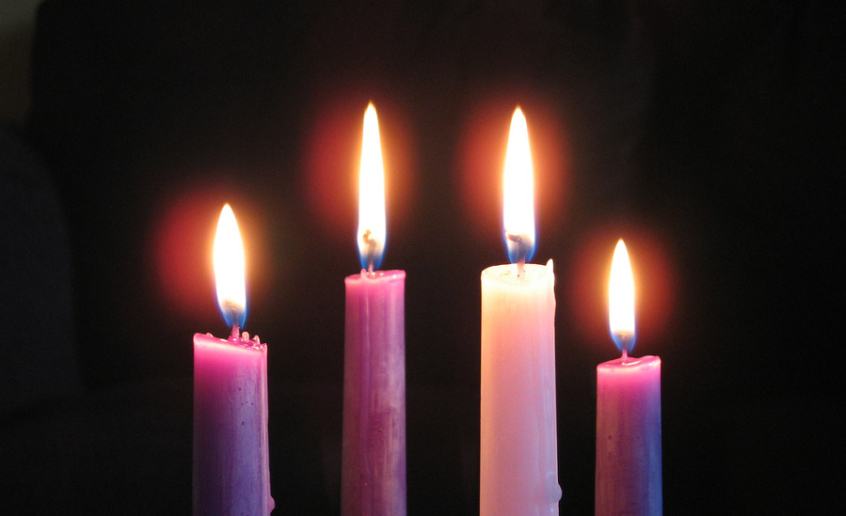
By any measure, 2016 has been a difficult and distressing year.
The continuing carnage in the Middle East and consequent refugee crisis. The deep divisions in British and American society revealed by the Brexit referendum and the Presidential election. The horrific events which seemed to come week after week – be it the murder of British MP Jo Cox, or the worst ever mass shooting on American soil in Orlando.
For understandable reasons, many are enthusiastic for the start of the new calendar year and the chance of a fresh start it brings. Yes, the Church calendar actually begins at Advent. So, happy new year! But can it really be happy with the world in such a mess?
Advent offers us the opportunity to look at the world afresh and gives us ultimate hope – not just the hope of turning over a new leaf, but the hope that in the midst of the suffering, despair and disaster, God is coming.
As Christians, we don't believe in a distant, uncaring God, a God who causes these bad things to happen, or who sits idly by while we are going through the terrible times of life. No, instead, we believe in a God who does something. The God who opts into the world's mess and pain and suffering and who experienced it himself.
The Bishop of Leeds, Nick Baines, puts it like this: "The point of the timing of Advent is that we live with the expectation and anticipation that ends in Christmas... which turns out to be the beginning of a story that doesn't begin or end there. God, God's world, God's people."
He goes on, "The thing that shocks me today is that Advent, in asking us to question our fixed expectations, also invites us to look differently at who and how God is. We often seem to be obsessed with maintaining our purity – not being contaminated by the nasty or dodgy stuff of 'the world'. Yet, we are being opened up to the fact that at Christmas, God opted into the world of joy and muck, and did not exempt himself from all that means. In other words, God decided that, rather than worrying about being contaminated by the bad stuff, he would contaminate the world with good stuff: generosity, grace, love, mercy, justice, hope."
That is the God we anticipate in Advent – the God who understands. The God who feels our pain, and more importantly, the God who did something about it. In under four weeks' time we'll mark the coming of Jesus into the world as a baby. He came into a world that was in a mess. Roman occupation of the land of his forefathers meant misery for much of the population. 2,000 years later, not much has changed. There is misery every time we turn on the news. But as Christians, we know that's not the full story. God has opted into our world in the form of Jesus, and during this season of Advent, we anticipate that. We anticipate the joy he will bring. We anticipate the peace he will bring. And we anticipate the time when there will be no more misery and no more suffering. No more school shootings, no more money worries, no more persecution of our brothers and sisters overseas.
One way we can live in the light of God's coming to us as a baby at Christmas is to help build his Kingdom through justice and mercy, as outlined in one of the most famous passages of prophecy from the Hebrew Bible. In Isaiah 40 we read that, "Every valley shall be raised up, every mountain and hill made low; the rough ground shall become level, the rugged places a plain. And the glory of the Lord will be revealed, and all people will see it together. For the mouth of the Lord has spoken." This reading is used at the beginning of Advent to reflect what it is that we are anticipating. Not just the celebration of Christmas, but the inauguration of God's Kingdom of peace, righteousness and justice.
These words speak of the reality of Emmanuel – God with us. God in the struggle and suffering of our lives. God who doesn't always make sense of tragedy, but who won't let go during it.













